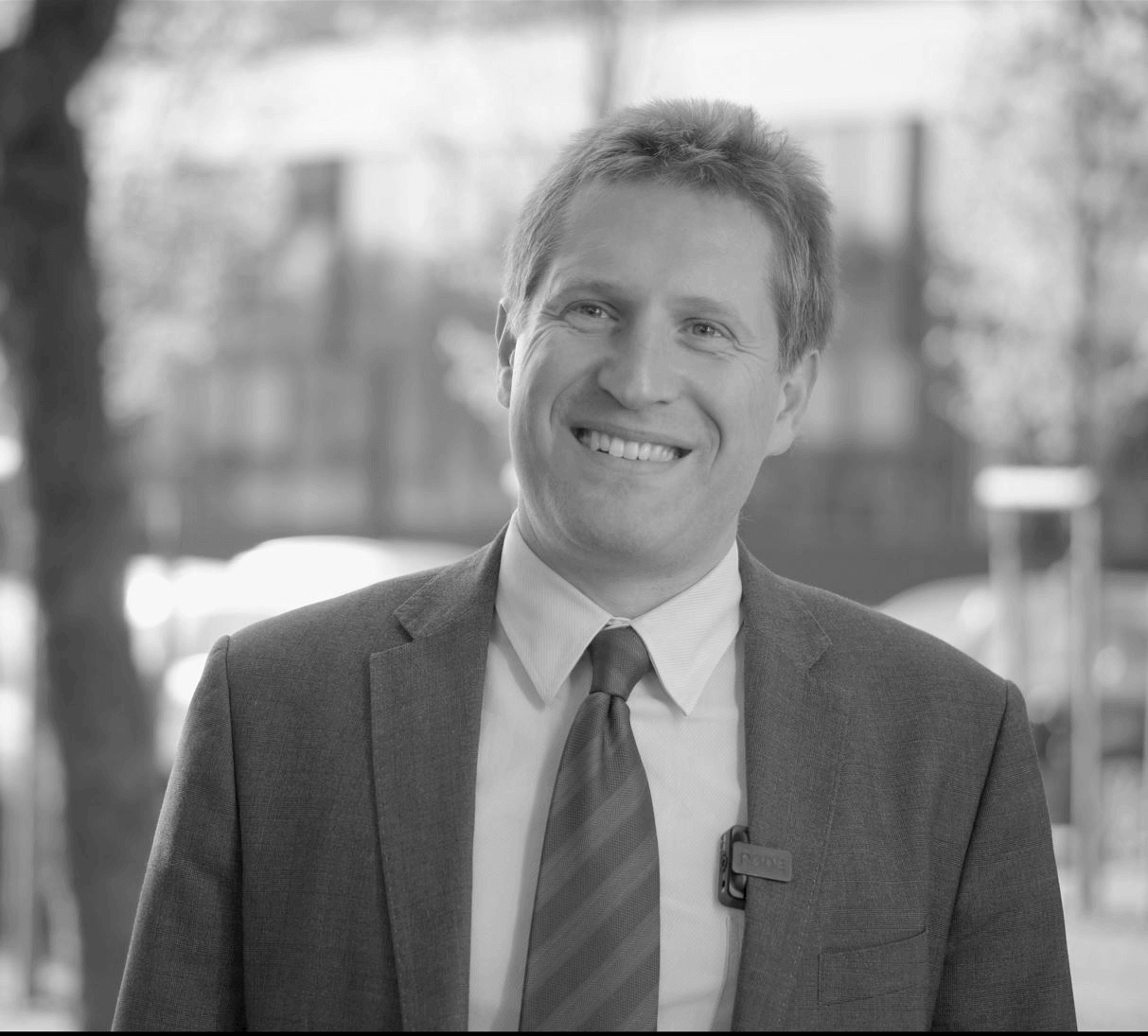Recently, several times in private conversations, but also in public forums, I have had to face the question of what the weakness of water management in Poland is due to. Needless to say, it was neither easy nor enjoyable, but it prompted me to sort out my thoughts on the matter somewhat. The following text is a synthesis of my conclusions and observations.
Weakness of Polish water management – causes
The symptoms of this weakness are also visible to those “outside the industry”: the disaster on the Oder River, the spit diversion that no one is using, flooding in cities, drought and restrictions on water intake. On top of that, there is a long processing time for water permits, an unclarified fee system and a small number of experts and project companies. One could go on for a long time listing.
The simplest way would be to say that the lack of funding for this part of the economy is to blame. But this time I will start with a fundamental issue that has certainly already resounded in the political dispute, including with last year’s disaster on the Oder River. It’s about the perception of what a river is, and even more broadly, what the environment is. The topic of water management was prominent in the election campaign. However, the essence of the dispute over ecosystems, including rivers, does not originate in the world of politics, but goes deeper. I would look for its sources in a certain sensitivity and setting of a personal hierarchy according to which investors, officials, engineers and academics think about the environment, about water. I will focus on rivers, but similar thinking also applies to lakes, groundwater, marshes or the Baltic Sea.
Experts with an eco-friendly approach
I think we can distinguish two groups of experts. The former has been in operation for a short time, with its roots in the second half of the last century, while the latter’s thinking is based more on historical patterns, either from the period of dynamic industrial development or even earlier.
The first group considers bringing the environment to well-being as the basis of water management. According to them, the goal of water management activities should be the cleanliness of rivers, as well as concern for their biodiversity. They should also be natural watercourses, not channels with trapezoidal cross sections and fortified, built-up banks. This group generally does not focus on individual investments, but derives the argumentation of its beliefs from the problems of climate change and the environment on a regional and even global scale.
The basis of their beliefs and factual support is the Water Framework Directive. I also think that this group would not be afraid of giving legal personality to the Vistula or Oder, looking for value in the fact that the river (connected to the valley, tributaries, groundwater into a coherent ecosystem) is healthy, clean, as natural as possible. All other purposes of “farming” are secondary to them. They can be implemented as long as they do not adversely affect the welfare of the river and the environment. Experts in this group would plan water management from the side of ensuring the abundance of the environment as such, as well as its natural ability to accommodate change and offset threats.
However, it happens that active representatives of this group in the face of more complicated issues, when a real, specifically localized hydrological problem arises (for example, the conduct of a watercourse transformed by development through the city) do not have sufficient knowledge and skills to deal with it.
Is it wrong to draw on resources? – second group of experts
The second group’s way of thinking about water goes much deeper into history. He derives it from the thesis that water is a resource that is managed and shaped in pursuit of economic plans, economic and even political goals of far greater importance than the more undefined “natural environment.” This group often questions the notion of “naturalness” at all, arguing that the world is already so transformed that only further modeling it with “engineering” methods will provide the necessary resources and security.
Experts from a group that draws patterns from the distant past, referring to the traditions and history of river use, are focused on resource use rather than the welfare of nature. Solutions to the problems are not sought in the basic way of environmental management, a principled approach to its “good condition,” but in specific investments, of which there are too few. What shines through from their approach is the certainty that if investment plans and programs were implemented and investments built and maintained, problems (floods, droughts) would also be easier to solve. They plan water management from the side of resource use, mostly thinking about it in the context of further investments.
Hence the multitude of different projects with longer histories in Water Management Plans and Flood Risk Management Plans. According to this thinking, man can and even should control nature. They assume that it is more important than nature and its goals come first, ignoring the fact that there is feedback. There are times when nature shows us a “red card.” Both groups agree with the thesis: “man first,” but the former, acting supportively toward nature, emphasizes that the primary goal of keeping the environment in good condition pursues precisely at the same time the goals of providing conditions for human well-being.
Polish water management – short-term thinking
Descending to the level of specifics, one can see, for example, that a group focusing on human needs taken out of the surrounding environment assumes the use of the Vistula River for transportation purposes, and only against this background does it consider how to minimize the environmental effects of such an action. Anyway, they tend not to consider these effects as negative and often treat the whole process of assessing the environmental impact of an investment very lightly. For example, the idea that we will build another stage on the Vistula at Niepołomice or Siarzewo to reduce the effects of erosion below the previous stage, the one upstream. And when erosion occurs below the next one (and it will certainly occur), then… we’ll build another one. Or a series of several smaller ones, until the problem is finally solved – the entire river will be estivated. In this sense, the concept is consistent.
Sound familiar? This is how water management has been implemented for as long as I can remember, regardless of which political option is in power. I have been a conscious participant or observer of these processes for 20 years. Water management has long been treated as an element that ensures the achievement of economic or political goals. She had to submit to them. The goals could have been to receive wastewater from the city or nutrients flowing from the fields, to provide a transportation route and water for industry (cooling, drinking water), to locate a huge logistics hall, to build a housing development, and so on.
When the high priority is not the welfare of the river, for example:
- A farmer can over-fertilize, cut down mid-field canopies and plow all the way to the riverbank – we are, after all, pursuing agricultural production goals;
- A road builder may channelize a piece of a watercourse, enclose it and fortify it, because routing a road is more important; transportation needs have a higher priority;
- On the micro level – it is not a significant harm to pick stones from the river to reinforce the driveway at the house with them or to line the foundation with pebbles; these purposes are more important than the environmental state of the river when its natural dynamic balance is violated;
- The culvert into which the river has been introduced may be dozens of meters long, and the official issuing the water permit didn’t even think that fish don’t swim in the dark in such bridged watercourses; more important is the transportation hub;
- storm overflows from the combined sewer system can operate uncontrollably when the amount of pollutant load discharged is not specified, but in an undefined way the regulation limits to ten the number of times sewage overflows can occur without consequences; the city’s development and low investment in infrastructure justify dumping pollutants into rivers;
- A giant logistics or commercial hall, sealed at almost 100 percent. the surface of parking lots and industrial zones, or a housing development built on a huge, boundary-spanning, sealed box of underground parking lots, i.e. investments that abruptly change the nature of rainwater runoff, are justified by reducing unemployment, property tax revenues or housing development.
Education of experts one of the sources of problems
Many of the goals set for hydrological engineers, civil engineers, sanitary engineers or water and wastewater technologists on a local scale were only achievable by hard engineering methods. It was possible to build a reservoir in Dobczyce, baffling the Raba River with a dam and providing drinking water for the residents of Cracow in a situation where the discharge of brine and pollutants into the Vistula made it impossible to use the intakes in question. Today, the treatment of salt water is very expensive, but not impossible… In universities, students were trained in increasingly sophisticated methods of treating dirty water to drinking levels. They also taught how to narrow the riverbed to bring a road, parking lot or other development into the valley and floodplain. In effect, we engineers have turned the world on its head.
Faced with the fact that impacts have far exceeded the ecosystem’s ability to cope, the superiority of economic policy over environmental well-being has led to paranoia, not only in investment, but already even in the education of the cadres responsible for the economy. Anyway, the shortcomings of the education system can be devoted to a separate article. They are so large that they have a direct impact on the ability to realize modern water management. The bench of experts and companies in the industry is very short, and knowledge from more developed countries is slowly or very superficially adopted in Poland.
Climate change an impetus for revolution or evolution?
The thinking that the ecosystem can be transformed at will and that resources are inexhaustible passed the test until human impact, urbanization and climate change caused it to collapse. Today, the scale of negative human intervention is so powerful, and the needs of society are so great, that it has become virtually impossible to continue implementing this policy. Much of the Western world finally realized this and began a slow, laborious retreat. At its core in Europe is precisely the Water Framework Directive, a document that has “not caught on” in Poland.
Change is necessary. There is increasing talk of a “paradigm shift.” What might this look like in practice? It can either be the result of a revolution or an evolution that respects the knowledge of predecessors. The need for change does not justify ignoring the technical knowledge developed over many generations. Unfortunately, water management issues are so niche and knowledge so hermetic that expert discussion does not break through into the consciousness of politicians other than in the form of protests against key investments, and arguments assuming the need for change have not sounded attractive enough so far. However, it seems that the visible effects of climate change will effectively address the topic of water management.
The discussion over these past years has also been marred by cynicism and vested interests of small pressure groups. On the one hand, there was the ruthless pushing of unreasonable investments, and on the other, the overexposure of arguments that were only an excuse to stop them. Hydrobeton and eco-terrorists. It was therefore necessary to get to the extreme point where we just found ourselves. Water is beginning to be a topic that defines the possibilities of international politics, national development, comfort, cost and security of life. Today, when not only the playing field but also the game itself has changed, it is necessary to clearly redefine the purpose of water management in Poland.
In order to make this important evolution with public support, the Oder disaster can be used as a starting point for changing goals and methods. More than an investment plan, we need a review of the situation in terms of reducing widespread river spoilage. This is a huge challenge. This, I’m afraid, some of the people in a group that bases its activities on a long-standing tradition are no longer capable of doing. They do not accept that change has already occurred, but also new scientific knowledge and new engineering tools. And is their opponent group prepared for this change? No one knows that.
Does he have a good understanding of the challenges described above of today’s government, which has taken to the banner the slogan of “river restoration” (for the first time)? We will see in the near future. I believe, and I find evidence of this in many social media posts and statements at conferences, that there are experts in both groups ready to work together peacefully for the good of the rivers and their ecosystems. As long as it is not necessary to leave the ministerial office again with a sense of defeat. Then again, the prospect of pinning to trees in protest against investments that respect no one and nothing will become closer.
Jacek Zalewski, Director at RetencjaPL. His passion is water management. Heavily involved in promoting sustainable approaches to drainage system management, green-blue infrastructure and retention planning, and sustainable river maintenance. Author of guidelines and directories aimed at designing livable and climate-resilient cities. Practitioner, with extensive experience working with local government and water and sewer companies.

 Polski
Polski






